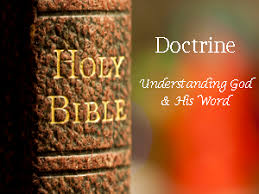The fourth in a series of 17 sermons
Series Theme
This series of sermon follow the articles of the Belgic Confession to present an bird’s eye view of the main doctrines of the Bible.
Readings reproduced on this page:
The Holy Bible: New International Version. 1996, 1984. Grand Rapids: Zondervan
Readings
2 Peter 1:1–21 (NIV84)
1Simon Peter, a servant and apostle of Jesus Christ, To those who through the righteousness of our God and Savior Jesus Christ have received a faith as precious as ours:
2Grace and peace be yours in abundance through the knowledge of God and of Jesus our Lord.
3His divine power has given us everything we need for life and godliness through our knowledge of him who called us by his own glory and goodness.
4Through these he has given us his very great and precious promises, so that through them you may participate in the divine nature and escape the corruption in the world caused by evil desires.
5For this very reason, make every effort to add to your faith goodness; and to goodness, knowledge;
6and to knowledge, self-control; and to self-control, perseverance; and to perseverance, godliness;
7and to godliness, brotherly kindness; and to brotherly kindness, love.
8For if you possess these qualities in increasing measure, they will keep you from being ineffective and unproductive in your knowledge of our Lord Jesus Christ.
9But if anyone does not have them, he is nearsighted and blind, and has forgotten that he has been cleansed from his past sins.
10Therefore, my brothers, be all the more eager to make your calling and election sure. For if you do these things, you will never fall,
11and you will receive a rich welcome into the eternal kingdom of our Lord and Savior Jesus Christ.
12So I will always remind you of these things, even though you know them and are firmly established in the truth you now have.
13I think it is right to refresh your memory as long as I live in the tent of this body,
14because I know that I will soon put it aside, as our Lord Jesus Christ has made clear to me.
15And I will make every effort to see that after my departure you will always be able to remember these things.
16We did not follow cleverly invented stories when we told you about the power and coming of our Lord Jesus Christ, but we were eyewitnesses of his majesty.
17For he received honor and glory from God the Father when the voice came to him from the Majestic Glory, saying, “This is my Son, whom I love; with him I am well pleased.”
18We ourselves heard this voice that came from heaven when we were with him on the sacred mountain.
19And we have the word of the prophets made more certain, and you will do well to pay attention to it, as to a light shining in a dark place, until the day dawns and the morning star rises in your hearts.
20Above all, you must understand that no prophecy of Scripture came about by the prophet’s own interpretation.
21For prophecy never had its origin in the will of man, but men spoke from God as they were carried along by the Holy Spirit.
Text
Psalm 119:105, 129-136(NIV84)
105Your word is a lamp to my feet and a light for my path.
129Your statutes are wonderful; therefore I obey them.
130The unfolding of your words gives light; it gives understanding to the simple.
131I open my mouth and pant, longing for your commands.
132Turn to me and have mercy on me, as you always do to those who love your name.
133Direct my footsteps according to your word; let no sin rule over me.
134Redeem me from the oppression of men, that I may obey your precepts.
135Make your face shine upon your servant and teach me your decrees.
136Streams of tears flow from my eyes, for your law is not obeyed.
.
Belgic Confession Article 3: The Written Word of God
We confess that this Word of God was not sent nor delivered by the will of men, but that holy men of God spoke, being moved by the Holy Spirit, as Peter says.
Afterwards our God__ because of the special care He has for us and our salvation__ commanded His servants, the prophets and apostles, to commit this revealed Word to writing.
He Himself wrote with His own finger the two tables of the law.
Therefore we call such writings holy and divine Scriptures.


